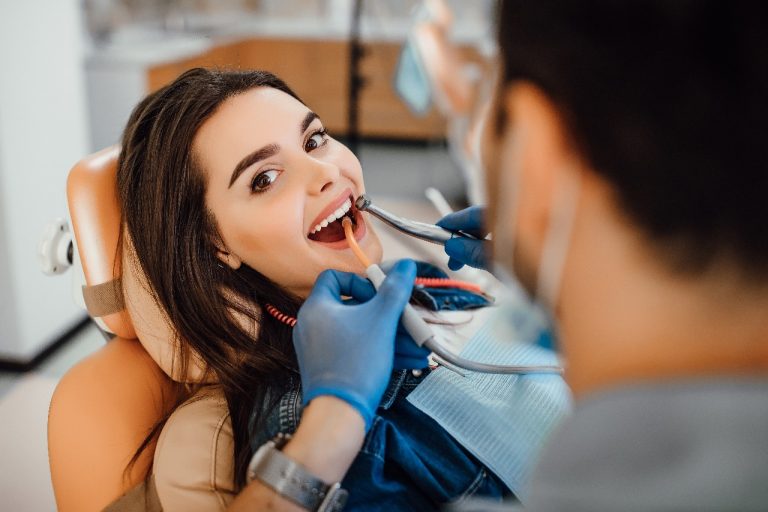When it comes to understanding the connection between dental health and general wellbeing, one surprising area of interest is whether a cavity can cause headaches. Dental issues often extend beyond the mouth, and headaches can be one of the symptoms of underlying oral health problems. This article explores the link between cavities and headaches, including the causes, symptoms, and prevention methods, all supported by research.
What Causes a Cavity to Trigger a Headache?
A cavity, or dental caries, develops when tooth enamel is damaged by acid-producing bacteria. As the decay progresses, it exposes the sensitive layers of the tooth, potentially irritating the nerves. This nerve irritation can result in referred pain, which is discomfort felt in a different part of the body than its origin, such as the head. The trigeminal nerve, which serves the teeth and face, plays a significant role in this pain referral process.
Additionally, untreated cavities may lead to infections like dental abscesses, which can cause systemic inflammation. This inflammation often triggers tension headaches or even migraines.
What Are the Symptoms Linking Cavities to Headaches?
The symptoms of a cavity that may cause headaches include:
- Persistent toothache that worsens with hot or cold food and drinks.
- Pain radiating to the jaw, temples, or behind the eyes.
- Swollen gums or facial pressure, particularly near the sinuses.
- Dull or sharp throbbing pain extending to the head.
- Sensitivity to sweet foods or biting pressure.
These symptoms indicate the need for a thorough dental examination to identify and address the root cause.
How Does a Dental Infection Lead to Headaches?
A cavity left untreated can progress to a dental infection or abscess, which can spread to surrounding tissues and even other parts of the body. Infections cause systemic inflammation, potentially leading to fever, swelling, and intense headaches.
Sinus Infections and Headaches
Cavities in the upper teeth are close to the maxillary sinuses. If an infection spreads to this area, it may cause sinusitis, resulting in headaches, facial pain, and nasal congestion.
Jaw Tension and TMJ Disorders
Cavities that alter your bite alignment can strain the jaw muscles and joints, leading to temporomandibular joint (TMJ) disorders. TMJ problems often cause headaches, earaches, and jaw pain.
What Are the Prevention Strategies for Cavities and Related Headaches?
Preventing cavities not only safeguards oral health but also reduces the risk of associated headaches. Follow these steps:
- Brush and Floss Regularly: Use fluoride toothpaste to strengthen enamel and prevent decay.
- Maintain a Healthy Diet: Limit sugary and acidic foods that feed harmful bacteria.
- Visit the Dentist Bi-Annually: Regular check-ups to dentist fletcher can detect and treat cavities early.
- Address Oral Pain Promptly: Don’t ignore tooth pain or headaches; timely intervention prevents complications.
Table: How Cavities and Headaches Are Connected
| Condition | How It Relates to Headaches | Symptoms | Treatment |
| Cavity | Exposes nerves, causing referred pain to the head. | Toothache, sensitivity, localised pain | Filling, crown, or root canal. |
| Sinus Infection (Sinusitis) | Cavities near the sinuses may trigger sinus pressure. | Facial pain, headache near temples | Antibiotics, sinus drainage. |
| TMJ Disorders | Misaligned bite strains jaw muscles, leading to headaches. | Jaw pain, earaches, and chronic headaches | Dental splints, physical therapy. |
| Dental Abscess | Infection spreads, causing inflammation. | Fever, throbbing pain, severe headaches | Drainage, antibiotics, root canal. |
Can Headaches Be the Sole Symptom of a Dental Problem?
Yes, headaches may sometimes be the only noticeable symptom of a dental issue. This is due to the interconnected nature of the trigeminal nerve, which can refer pain to various parts of the head. Dental-related headaches may often be misdiagnosed as migraines, tension headaches, or sinus headaches.
What Does Research Say About Dental Pain and Headaches?
Studies have demonstrated the intricate link between oral health and headaches. Research published in the Australian Dental Journal highlights the impact of dental infections on systemic health, including headaches caused by inflammation and nerve involvement. Another study by the Australian Society of Endodontology emphasised the role of untreated dental caries in developing chronic pain conditions, including headaches.
Read More: Can Cavities Cause Bad Breath? A Deep Dive into Causes, Symptoms, and Prevention
References:
Why Choose Fletcher Dental for Your Oral Health Needs?
If you’re experiencing tooth pain or recurring headaches, seeking professional dental care is crucial. At Fletcher Dental, we specialise in diagnosing and treating dental issues that may cause headaches, such as cavities, TMJ disorders, and dental abscesses. Our patient-focused approach ensures personalised care using the latest technology to relieve your symptoms and restore your health. Conveniently located and with flexible appointment options, Fletcher Dental is your trusted partner for comprehensive dental care.
Visit Fletcher Dental today to experience the difference in quality care. Don’t let a cavity or headache disrupt your life—let us help you smile pain-free!
FAQs
- Can a cavity cause migraines?
Yes, cavities can irritate dental nerves or cause infections that trigger migraines, especially in individuals prone to chronic headaches. - How do I know if my headache is related to a dental problem?
If your headache is accompanied by tooth pain, jaw discomfort, or sinus pressure, it’s likely linked to a dental issue. Visit your dentist for an evaluation. - Can treating a cavity stop headaches?
Treating a cavity with a filling or root canal can eliminate the source of nerve irritation or infection, often resolving associated headaches. - Are headaches from dental issues common?
While not extremely common, dental issues like cavities, TMJ disorders, and infections are recognised causes of secondary headaches. - Should I see a dentist or doctor for headaches?
If your headaches are persistent and accompanied by oral pain, a dental examination is recommended. Your dentist can address any underlying dental causes. - Can gum infections also cause headaches?
Yes, gum infections can lead to inflammation and pressure that contribute to headaches. Proper dental care can prevent these issues.

